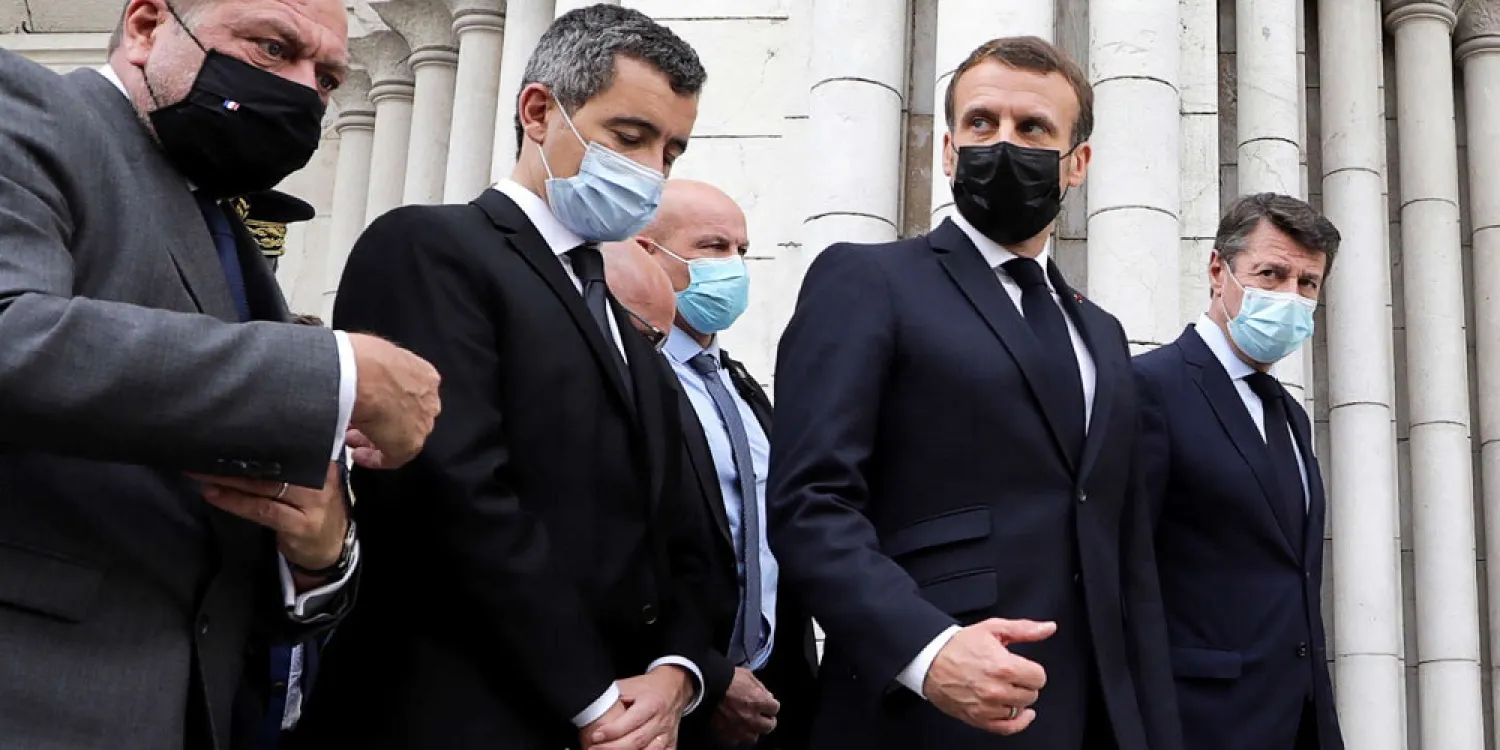French Interior Minister Gerald Darmanin will visit Tunisia and Algeria later this week to discuss security matters with his counterparts there, Darmanin told BFM TV on Monday.
Concerns over security and immigration have increased in France after a fatal knife attack at a church in Nice last week.
France's chief anti-terrorism prosecutor has said the man suspected of carrying out the Nice attack was a Tunisian born in 1999 who had arrived in Europe on Sept. 20 in Lampedusa, the Italian island off Tunisia.
French President Emmanuel Macron asked Darmanin to go to Tunis to discuss the fight against terrorism, the Elysee announced on Sunday.
The decision was announced after a telephone interview on Saturday between the French president and his Tunisian counterpart Kais Saied, who “expressed his solidarity with France after the terrorist acts,” said the presidency.
The two leaders “agreed to strengthen” Franco-Tunisian “cooperation in the fight against terrorism”. They notably “addressed the sensitive issue of the return of Tunisians with the obligation to leave French territory (OQTF), in priority those listed S”, added the Elysee.
On Saturday evening, the Tunisian presidency indicated that Macron and Saied had also discussed “the issue of illegal migration and solutions to be found together to deal with this phenomenon, which is worsening”.
Tunisian Prime Minister Hichem Mechichi called on his interior and justice ministers to fully cooperate with the French authorities in the investigation.









